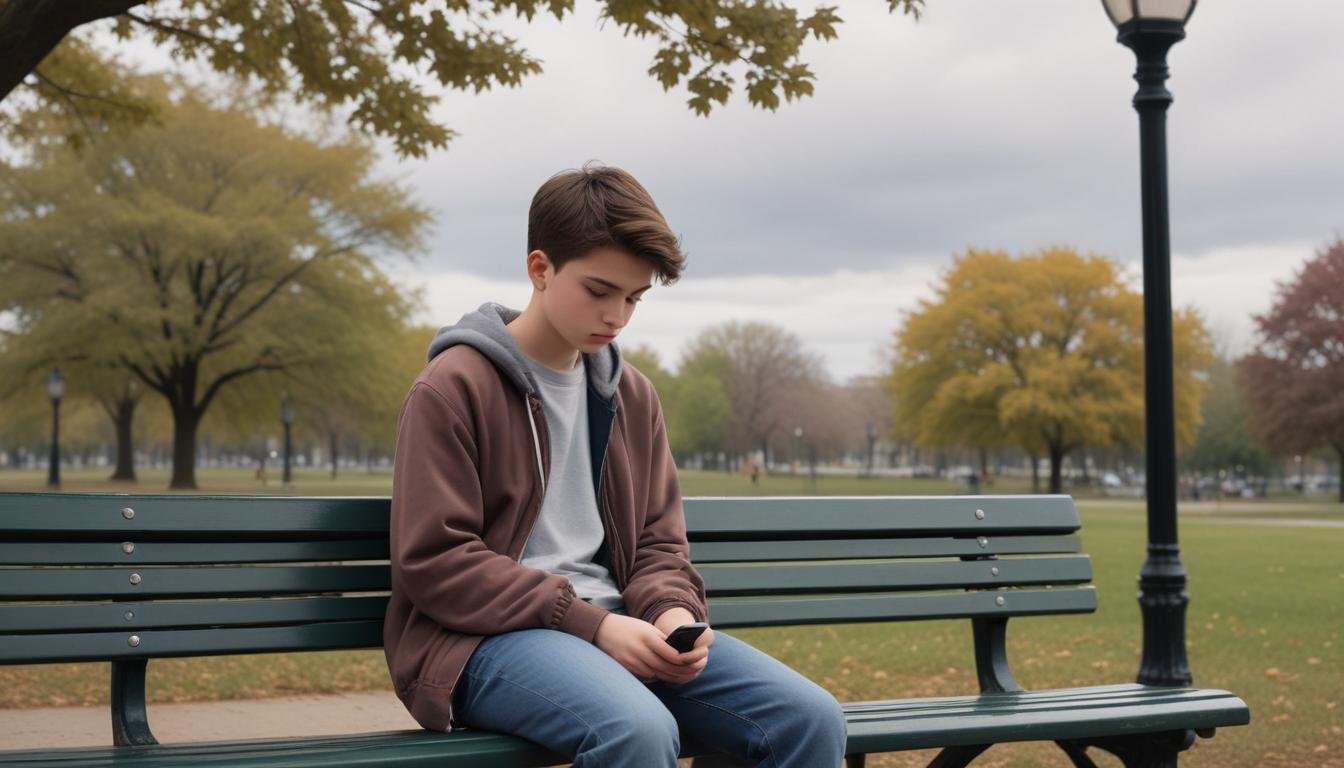Understanding Cyberbullying and Its Impact
Cyberbullying is when someone uses the internet or their phone to hurt or scare another person. This can happen in many ways. For example, someone might send mean messages, share hurtful photos, or spread stories that aren’t true. It’s important to know that cyberbullying can really hurt feelings and affect how teens feel about themselves. They might feel sad, scared, or even alone. I want you to know that it’s never okay to treat someone that way online or anywhere else. We all deserve to feel safe and happy, especially when we are just trying to have fun online.
When we talk about teen safety, it’s important to understand that what happens online can affect real life. Sometimes, teens who experience online harassment might not want to go to school or may pull away from their friends. This can make them feel isolated. If we spot cyberbullying, we can help. Understanding its impact is a first step to making things better. If we all work together, we can create a kinder digital world, where everyone feels respected and valued. So, let’s be brave and stand up for one another, both online and off!
Recognizing Behavioral Changes in Teens

Have you ever noticed a friend acting a little different? Sometimes, when teens are going through something tough, like cyberbullying or online harassment, they might not show it right away. You might see them being more quiet or spending a lot of time alone. They might not want to hang out with friends like they used to. These changes can be signs that something is bothering them. If your friend used to be super chatty but now seems shy or anxious, it’s a good idea to check in with them.
Also, look out for changes in their mood. Maybe they get upset easily or seem more sad than usual. If they have started to lose interest in things they once loved, like sports or video games, it could be a sign something is wrong. It’s like a little lightbulb going off in your head saying, “Hey, let’s be a good friend and see what’s up!”
Sometimes, teens might even stop using social media or delete their accounts altogether because they don’t want to deal with what’s going on. That can be a big change if they used to be so active online. If you see this happening, you can help by reaching out. Let them know you care and that they can talk to you about anything. You can be their safe place, where they can share their feelings without fear or judgment. Remember, being supportive can really make a difference. Together, we can create a space where everyone feels safe and loved, both in the real world and online!
Monitoring Social Media Interactions
Have you ever wondered what your friends are doing online? A lot of us spend time on social media, sharing cool pictures and funny stories. But sometimes, we might see things that don’t feel right. It’s super important to keep an eye on what’s happening in our online world! While it’s great to have fun and connect with others, we need to be aware of any signs of cyberbullying or online harassment. It’s like being a detective! You want to look for clues that something might be wrong.
If your friend seems upset after using their phone or computer, that’s a sign to pay attention. Maybe they are more distant than usual, or they might complain about how someone is treating them online. You can help by being a good listener. Let them know it’s okay to talk about their feelings, even if it’s hard. Sometimes, just knowing that someone is there for them can lift their spirits!
Also, look at the kinds of posts or comments your friends are sharing. If they seem sad or frustrated in their messages, like they are feeling lonely or hurt, that’s a good reason to check in on them. You can ask questions like, “Hey, I saw you posted something that made me worry. Do you want to talk about it?” This shows you care and are willing to help. Remember, kindness goes a long way!
It’s also helpful to watch for if your friends are suddenly changing their privacy settings or becoming super private about their accounts. If they start to keep to themselves more and no longer feel safe online, they definitely need your support. Encourage them to share their feelings. You can even talk to adults if things get serious. They can help keep your friend safe and stop any cyberbullying from happening.
By being aware and watching how our friends act online, we can all take steps for teen safety. We can stand together to help each other and to make sure everyone feels happy and included! Let’s create a friendly, supportive online space where we lift each other up instead of bringing anyone down!
Encouraging Open Communication

Talking openly is super important when it comes to teen safety and dealing with things like cyberbullying. If you or a friend is going through a tough time, just know that it’s okay to speak up! It can be scary, but sharing thoughts and feelings with someone you trust can make a big difference. It might be a parent, a teacher, or even a close friend. When you talk about what’s on your mind, it helps others understand what you’re going through.
Sometimes, we might feel shy or think no one will understand us. But guess what? There are lots of people who care and want to help! If you notice a friend is feeling down or if you’re feeling sad yourself, why not give it a try? You can start by saying something simple, like, “I’ve been feeling a bit off lately. Can we chat?” Talking can help lift that heavy weight off your shoulders. It’s like sharing your backpack with a friend when it feels too heavy to carry alone!
Also, remember to create a safe space for your friends. If they come to you to share their feelings, make sure you listen with an open heart. Let them know it’s okay to express themselves and that you won’t judge them. When someone feels heard and understood, it can make them feel a lot better! You can say things like, “I’m here for you, and it’s okay to talk about how you feel.” Just knowing someone cares can brighten their day.
If you ever hear about cyberbullying or online harassment, like someone getting mean messages or teased online, encourage them to talk about it. Remind them that it’s not their fault and they don’t have to face it alone. It’s super brave to reach out for help! You could say, “You should talk to someone who can help, like a teacher or a parent. They can make sure it stops.” Together, we can help each other navigate these tough situations and create a more supportive world.
So let’s make a promise to keep talking, sharing, and listening. Every little chat counts, and it’s an amazing step toward making sure everyone feels safe and happy online and offline. Every time we connect with each other, we contribute to a stronger, kinder community. Remember, you have the power to make a positive change just by being a good friend!
FAQ

Have you ever had a question about something important? Maybe you’re wondering how to deal with cyberbullying or how to keep your friends safe online. It’s okay to have questions! In fact, asking questions is a great way to learn and help others. Let’s talk about some common things people ask when it comes to online harassment and teen safety.
One big question people often have is, “How can I tell if my friend is being cyberbullied?” Well, if you notice them acting a bit off or if they seem sad or upset after using their phone, that can be a clue. It’s important to keep an eye out for changes like withdrawal from activities they used to enjoy or being less social. If they’re having a hard time, gently asking them how they feel can show you care.
Another question I hear is, “What should I do if I see someone being bullied online?” This is super important! If you see someone being mean to a friend or someone else, it’s best to speak up. You can tell your friend that it’s not okay to treat others that way. You can also report the bullying on the platform where it’s happening. There are grown-ups who can help too, like teachers or parents, so don’t hesitate to reach out for more support.
Some people wonder about the best ways to support a friend who might be facing cyberbullying. One of the simplest things you can do is to just listen. If they want to talk, let them express what they’re feeling. Tell them you believe them and that they are not alone. Sometimes, just having someone who listens can make all the difference!
Lastly, people often ask how to create a safer environment online. It starts with kindness and respect. Always remember to treat others how you want to be treated. If everyone commits to being a good friend, we can make our online spaces much nicer and safer. We all have the power to spread positivity!
So don’t hesitate to ask questions. Whether you want to know more about dealing with online harassment or how to help a friend, remember that curiosity is a tool for learning and growing. Together, we can shine a light on cyberbullying and ensure everyone feels supported and safe! Let’s keep the conversation going!
About me
My name is Dr. Victor Lee, and I view cybersecurity as more than a job; it’s my passion. With my Ph.D. in Computer and Information Security and over 20 years working in the field, I’ve seen the cybersecurity landscape evolve firsthand. Sharing my knowledge is important to me, which is why I’ve also taught online courses at the college level. My goal is to make a real difference in the fight against cyber threats.


